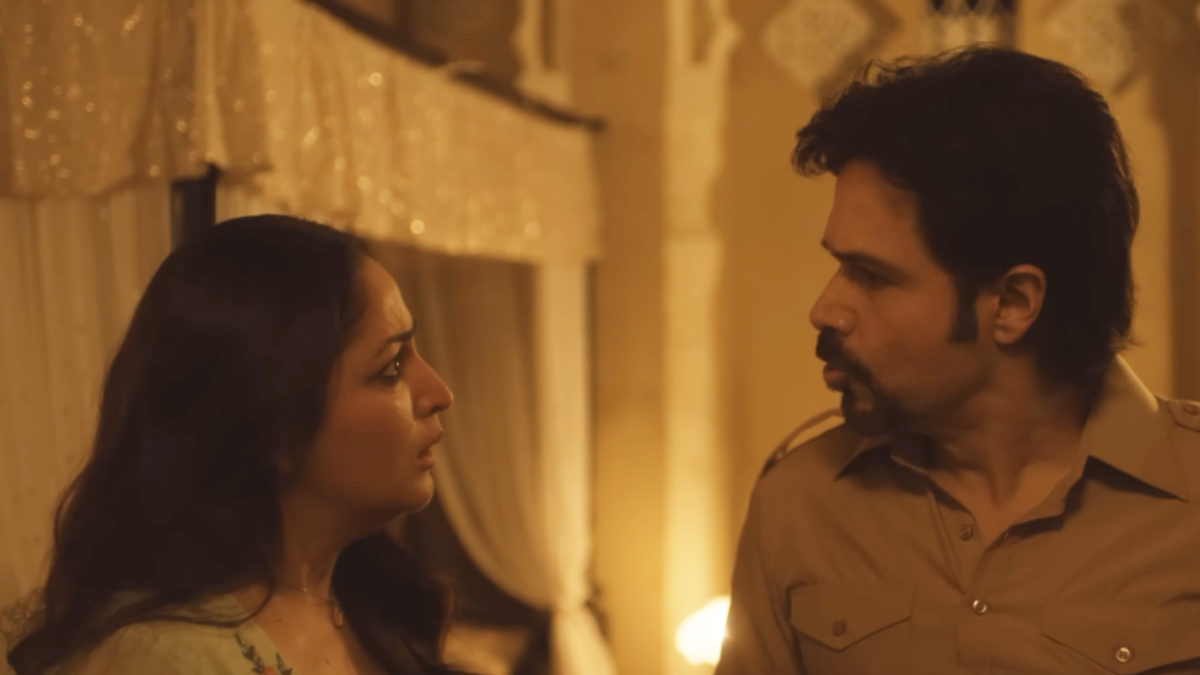Bollywood’s recent fascination with courtroom dramas finds a rare gem in Haq, directed by Suparn S Varma. This isn’t the kind of film that shouts to make its point — it argues, reasons and lingers with quiet conviction. Inspired by the historic Shah Bano case, Haq turns a legal landmark into an intimate human story about faith, justice and the right to dignity.
Yami Gautam Dhar, playing Shazia Bano, anchors the film with unflinching grace. From her early moments of silent endurance to her resolute stand in court, she internalizes every emotion rather than performing it. The progression is seamless — pain turns into principle, and vulnerability into assertion. Yami has been refining her craft steadily since Vicky Donor, but Haq feels like her most mature and complete performance yet. The courtroom sequence in the film’s latter half is a masterclass in controlled expression and dialogue precision. Her line, “Q u r a n rakhna, padhna aur samajhna alag baat hai,” lands like a truth bomb — neither dramatic nor rhetorical, just profoundly human.
Opposite her, Emraan Hashmi plays Abbas Khan, the husband whose actions trigger the storm that follows. His portrayal is refreshingly measured — not the stereotypical antagonist, but a man trapped between ego, conditioning and belief. Emraan brings a quiet complexity to the role, suggesting remorse beneath rigidity and conflict behind conviction. His restrained energy complements Yami’s emotional clarity, allowing their confrontations to resonate beyond the obvious. It’s a performance that underscores how far Hashmi has come from his early screen image — here, he trades flamboyance for nuance and earns it.
Adapted from a book ‘Bano: Bharat ki Beti’ by (journalist) Jigna Vora, the narrative unfolds as a pseudo-autobiography. It takes its time to set up Shazia’s emotional landscape before turning the courtroom into its main arena. The legal debate — though largely concentrated in the second half — is the film’s intellectual core. A more consistent integration of legal argumentation through the narrative might have given it even greater depth, especially considering the subject’s potential for constitutional and moral exploration. Yet, when it finally ignites, the exchanges are sharp, dignified and gripping.
Technically, Haq impresses with its restraint. Pratham Mehta’s cinematography frames the courtroom with a muted palette, contrasting it against warmer domestic tones, while Vishal Mishra’s background score weaves seamlessly through the film, amplifying emotion without overwhelming it. The music reinforces the film’s sense of dignity and control.
Suparn S Varma directs with assurance and empathy. He doesn’t sensationalize faith or law, nor does he sermonize. Instead, he lets perspective emerge organically through dialogue and silence. The tone remains consistent — intelligent, introspective and human.
If there’s one limitation, it’s structural. The film’s first half, while emotionally immersive, occasionally lingers too long before the legal fire ignites. For those who came expecting a full-fledged courtroom battle, the payoff comes late. But once it does, it grips with the weight of truth rather than theatrics.
Also Read: HAQ’s Most Powerful Dialogues: Yami Gautam and Emraan Hashmi’s Intense Confrontation
Ultimately, Haq stands apart because it refuses to treat its subject as spectacle. It’s a story told with humility and conviction, powered by two exceptional performances. Yami Gautam is magnificent; Emraan Hashmi, quietly brilliant. Together, they embody two sides of a truth — one seeking justice, the other trapped by pride.
Haq is cinema of conscience — reflective, courageous and profoundly relevant. It doesn’t deliver a verdict; it leaves you to arrive at your own.
Haq

4
